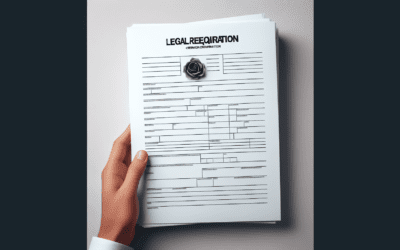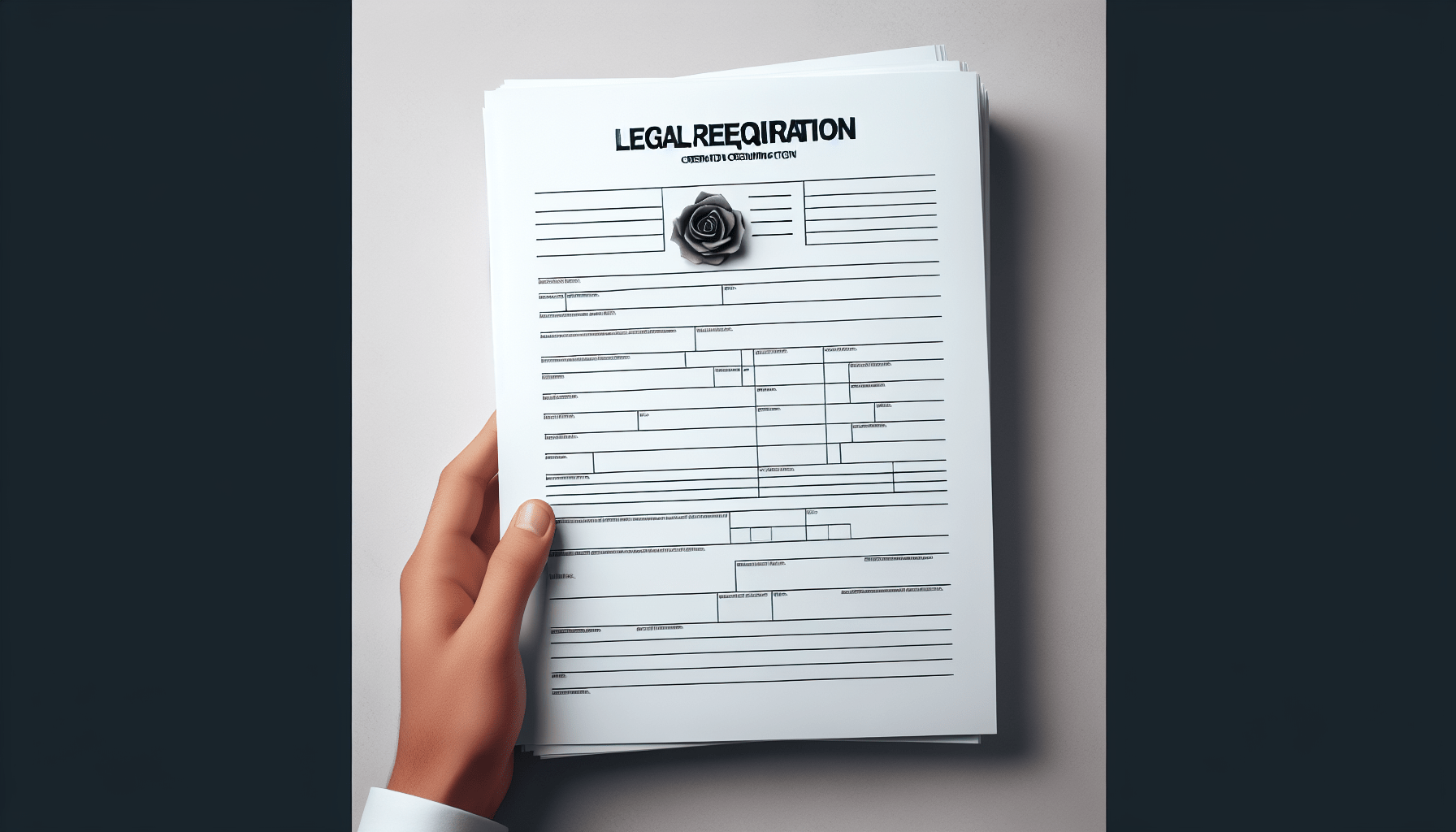So you’re considering cremation in Atlanta? Well, before you take that next step, it’s important to know exactly what information is required for the process. Whether it’s for yourself or a loved one, this article will provide you with a concise overview of the necessary details you’ll need to prepare for a cremation in the vibrant city of Atlanta. From legal documentation to personal preferences, we’ll guide you through the essential information you need to ensure a smooth and respectful cremation experience.
Cremation Process
Choosing Cremation
When considering end-of-life options, choosing cremation can be a personal and meaningful decision. Cremation is a popular choice for many individuals due to its affordability, environmental friendliness, and flexibility in memorialization options. By selecting cremation, you can have peace of mind knowing that you are making a choice that aligns with your values and preferences.
Finding a Cremation Provider
Finding a reputable cremation provider is an important step in the cremation process. Take the time to research and compare different providers in your area. Look for providers that offer transparent pricing, a range of service options, and excellent customer reviews. It’s essential to select a provider that is licensed, experienced, and compassionate to ensure that your loved one is treated with dignity and respect throughout the entire process.
Understanding the Cremation Process
Understanding the cremation process can help alleviate any concerns you may have. Cremation involves the careful and respectful incineration of the deceased’s body, using high temperatures between 1400-1800 degrees Fahrenheit. This process usually takes around two to three hours, and once complete, the remains are carefully gathered, processed, and placed in an urn or container of your choosing. It’s important to note that the cremation process follows strict guidelines and regulations to ensure the proper handling and identification of the deceased.
Documents and Authorization
Death Certificate
Obtaining a death certificate is a crucial part of the cremation process. The death certificate is an official document that confirms the passing of an individual, and it is typically issued by a medical professional or a coroner. This document is required by the cremation provider to initiate the cremation procedure. It is recommended to obtain multiple copies of the death certificate as you may need them for various legal and administrative purposes.
Authorization for Cremation
In addition to the death certificate, you will also need to provide authorization for the cremation to proceed. This authorization is typically given by the next of kin or the designated person responsible for making funeral arrangements. It grants permission for the cremation provider to carry out the cremation process.
Costs and Payment
Cremation Service Fees
Cremation service fees can vary depending on the location, provider, and the specific services chosen. It is essential to understand the breakdown of the costs associated with cremation. These fees typically cover the removal and transportation of the deceased, the actual cremation process, the use of facilities, and the provision of necessary staff. Request a detailed price list from potential cremation providers to ensure transparency and avoid any surprise charges.
Additional Costs
In addition to the cremation service fees, there may be additional costs to consider. These can include the purchase of an urn or container to hold the cremated remains, the cost of any memorialization options or services, and any fees associated with the transportation, delivery, or scattering of the ashes. It’s important to factor in these additional costs when budgeting for the cremation process.
Payment Options
Most cremation providers offer various payment options to accommodate different financial situations. These options can include pre-payment plans, installment plans, or the acceptance of insurance policies. Discuss the available payment options with the cremation provider to find a solution that works best for you and your family.
Cremation Pre-Planning
Pre-Planning Benefits
Pre-planning your cremation can provide numerous benefits for both you and your loved ones. By pre-planning, you can ensure that your wishes are carried out exactly as you desire. This relieves your family of the burden of decision-making during a difficult time and allows them to focus on grieving and honoring your memory. Pre-planning also allows you to lock in current pricing, protecting against future cost increases.
Choosing a Cremation Package
When pre-planning your cremation, it’s important to explore the different package options available. Cremation packages can vary in the services included and the associated costs. Consider your preferences and budget when selecting a package. Some packages may include memorial services, the use of facilities for visitations, or transportation services. Take your time to review each option and choose the package that best fits your needs and desires.
Considering Memorial Services
While cremation provides flexibility in memorialization, it’s essential to consider whether you would like to have a memorial service to honor your loved one. Memorial services can be held before or after the cremation process and can take various forms, such as traditional funeral services, memorial gatherings, or celebrations of life. Think about the type of memorial service you would like and communicate your preferences to your loved ones and the cremation provider.
Cremation Service Options
Direct Cremation
Direct cremation is the simplest and most affordable option available. With direct cremation, the body is cremated immediately after death, without any funeral or memorial services beforehand. This option is often chosen for its simplicity and cost-effectiveness, allowing families to hold a separate memorial service at a later date or scatter the ashes in a meaningful location.
Cremation with Memorial Service
Cremation with a memorial service offers families the opportunity to have a formal service to honor their loved one after the cremation process. This service can take place in a funeral home, a place of worship, or any other location with personal significance. The cremated remains can be present during the service, providing a focal point for remembrance and reflection.
Cremation with Funeral Service
For those who prefer a more traditional approach, cremation can also be combined with a funeral service. In this option, the body is typically embalmed and placed in a casket for a viewing or visitation before cremation takes place. The funeral service can be held before or after the cremation, allowing for a more traditional funeral experience. Following the funeral service, the cremation process is carried out, and the cremated remains can be interred, scattered, or placed in an urn.
Cremation Urns and Containers
Types of Urns and Containers
There is a wide range of urns and containers available to hold the cremated remains. These options vary in material, design, size, and price. Common types of urns include marble, ceramic, bronze, and biodegradable options such as bamboo or paper. Containers can range from simple boxes to more intricate sculptures or customized designs. It’s essential to choose an urn or container that reflects your loved one’s personality and provides comfort and solace for those left behind.
Choosing the Right Urn
When choosing an urn or container, consider the intended use and the final resting place. If you plan to keep the urn at home, you may want something that blends with your decor and acts as a discreet memorial. If the urn will be displayed in a columbarium or buried, you may prefer a more durable material. Take into account your loved one’s preferences and choose an urn that honors their memory in a way that feels meaningful to you.
Customized Cremation Options
Many cremation providers offer customized options for urns and containers, allowing you to personalize the final resting place. These options can include engraving the urn with a name or personal message, adding a photograph or a piece of artwork, or even creating a one-of-a-kind design. Consider these customization options to create a unique and meaningful tribute to your loved one.
Transportation and Logistics
Transfer of the Deceased
Once the necessary authorizations and documents are in place, the transfer of the deceased from the place of death to the crematorium will be arranged by the cremation provider. This process is handled with the utmost care, respect, and dignity. The deceased will be carefully prepared and transported by experienced professionals, ensuring a smooth and efficient transfer.
Transportation to the Crematorium
After the transfer of the deceased, transportation to the crematorium is another aspect that the cremation provider takes care of. They will ensure that the deceased is transported safely and securely to the crematorium, where the cremation process will take place. Cremation providers have the necessary equipment and expertise to manage this transportation logistics effectively.
Delivery of Ashes
After the completion of the cremation process, the ashes will be gathered and placed in the chosen urn or container. The cremation provider will then arrange for the delivery of the ashes to you or the designated recipient. This delivery can be done in person or via mail, depending on your location and preferences. If you plan to scatter the ashes, the cremation provider may provide guidance and options for carrying out this meaningful ceremony.
Legal Considerations
Rights and Responsibilities
As the next of kin or the designated person responsible for making funeral arrangements, you have certain rights and responsibilities when it comes to the cremation process. It is important to familiarize yourself with these rights, which may include the right to choose the cremation provider, make decisions regarding the memorialization of the deceased, and access the necessary information and documents related to the process. Along with these rights come the responsibilities of providing necessary authorizations, completing required paperwork, and ensuring compliance with any legal requirements or regulations.
Cremation Laws and Regulations
Each state and country has specific laws and regulations regarding cremation. It is crucial to familiarize yourself with the laws applicable in your area to ensure that you are following the necessary protocols. Cremation providers are well-versed in these laws and can guide you through the process. By understanding the legal considerations, you can ensure that the cremation is carried out according to the established guidelines and in compliance with all relevant regulations.
Memorialization Options
Cremation Jewelry
Cremation jewelry offers a unique way to keep your loved one close to your heart. These specialized pieces of jewelry contain a small compartment where a portion of the cremated remains can be placed. Cremation jewelry comes in various designs, including pendants, bracelets, rings, and keychains. This option allows you to carry a tangible piece of your loved one with you wherever you go, providing comfort and a sense of closeness.
Cremation Memorials
Cremation memorials are dedicated spaces where the cremated remains can be laid to rest or memorialized. These can include traditional burial plots in a cemetery, columbarium niches, or scattering gardens. Cremation memorials provide a permanent location for family and friends to visit and pay their respects. Choosing a memorial option that aligns with your loved one’s wishes and your personal preferences can help create a lasting tribute to their memory.
Scattering Ashes
Scattering the ashes of a loved one can be a deeply meaningful and symbolic act. It allows for the ashes to be returned to nature or a location of personal significance. However, it is important to follow any local regulations or laws regarding the scattering of ashes. Some common options for scattering include at sea, in a designated scattering garden, or in a place that held special meaning for the deceased. Consider the wishes of your loved one and choose a scattering option that resonates with their life and legacy.
Support and Counseling Services
Grief Counseling
Losing a loved one is an emotional and challenging experience, and it is essential to prioritize your emotional well-being during this time. Grief counseling can provide a safe and supportive space to process your feelings and navigate the grieving process. Many cremation providers offer grief counseling services or can refer you to professionals who specialize in bereavement support. Seeking support from a professional counselor can help you cope with your loss and find healthy ways to honor and remember your loved one.
Support Groups
Joining a support group can be incredibly beneficial for those grieving the loss of a loved one. Support groups provide a sense of community and understanding as you connect with others who have experienced similar loss. These groups offer a platform to share your thoughts, fears, and emotions in a compassionate and non-judgmental environment. Cremation providers or local bereavement organizations can provide recommendations and information about support groups in your area.
Counseling Resources
Additionally, there are numerous counseling resources available for individuals who prefer individual therapy sessions. Mental health professionals specializing in grief counseling can offer personalized guidance and support tailored to your specific needs. These resources can help you navigate the complexities of grief while providing coping strategies to help you rebuild your life after loss. It’s important to prioritize your emotional well-being and seek counseling resources that resonate with you.
In conclusion, the cremation process entails various important considerations, from choosing cremation as an end-of-life option to selecting a cremation provider, understanding legal requirements, and exploring memorialization options. By familiarizing yourself with the cremation process and utilizing the comprehensive resources available, you can navigate this journey with clarity, compassion, and respect for both yourself and your loved one. Remember to take your time, ask questions, and lean on support from professionals and loved ones as you embark on this significant chapter of honoring and remembering your loved one’s life.








0 Comments